Vermont Tech hosted another successful year of AeroCamp on their Williston campus. Learn more about this youth summer program:
Vermont Tech Hosts AeroCamp
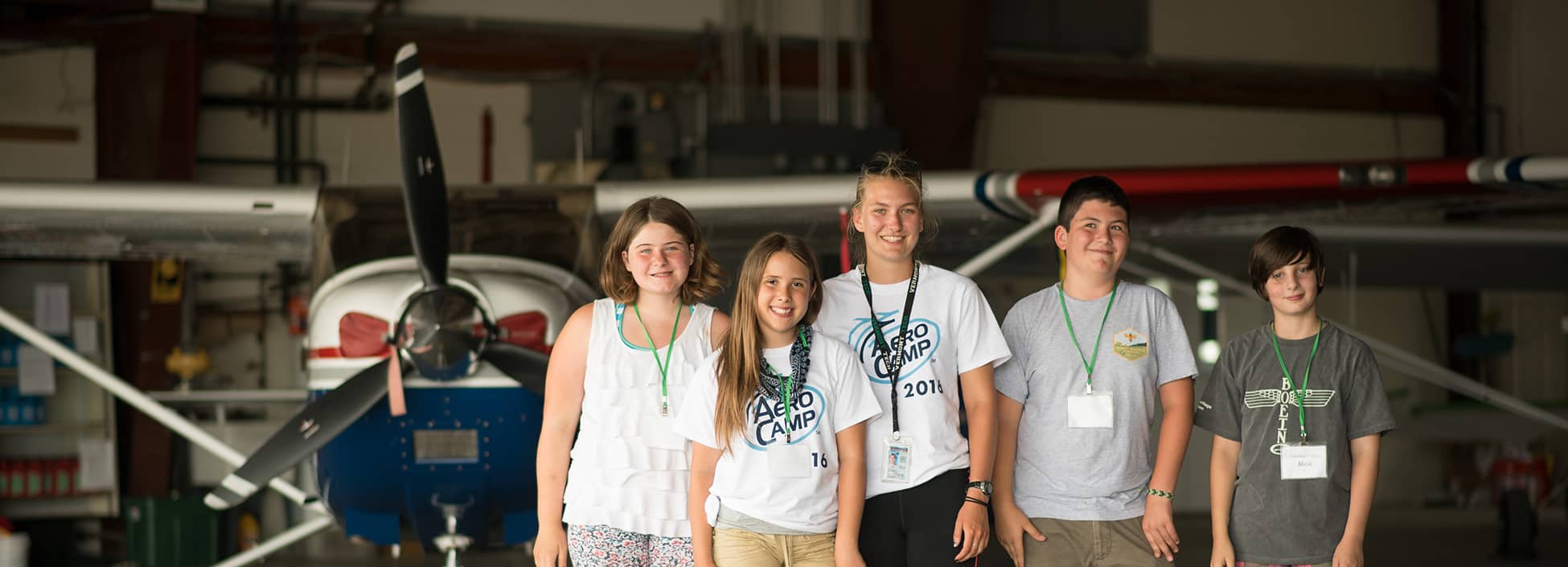

Vermont Tech hosted another successful year of AeroCamp on their Williston campus. Learn more about this youth summer program:

Vermont Technical College has been awarded a $250,000 grant from the state’s Working Lands program to increase meat processing courses at the school.
State agriculture officials say the money will create a number of certificate opportunities for students.
Officials say about 70 students a year will learn the trade which ultimately will help address workforce shortages in the industry.
“Vermont livestock producers cannot expand their operations or capitalize on the growing demand that we are seeing for their value-added products unless we really get the meat processing infrastructure expansions that are going to enable more throughput and help with the insufficient meat processing infrastructure that exists,” said Lynn Ellen Schimoler of the Working Lands Enterprise Fund.
This May, the program awarded $3.1 million in grants to grow agriculture and small businesses in Vermont.
More than $5 million in grants have been awarded since the beginning of the year.
As reported by WCAX, May 12, 2022
Vermont State University, the first statewide, hybrid higher education institution in the United States, launched its unified brand identity and logo during a live virtual broadcast today. The unveiling is a major milestone in a transformation process unifying three institutions – Castleton University, Northern Vermont University, and Vermont Technical College. Sixteen months ago, the Vermont State Colleges System initiated a strategic transformation process to redesign its system such that it could continue to deliver on its mission to Vermont and achieve financial stability.
The logo design, which features three triangles intersecting, represents the Vermont landscape and the connection between the three schools as they come together to chart a new path forward for higher education in the state. It was completed by Vermont-based company Solidarity of Unbridled Labour. More than 3,000 faculty, students, staff, alumni, and community partners have provided feedback throughout the process.
“Our Vermont State University brand identity emphasizes the idea of togetherness. Together, we can do great things,” said Sophie Zdatny, Chancellor of the Vermont State Colleges System.
“Together we are engaging in the hard work of transformation to bring together our individual strengths to provide innovative, affordable, and accessible higher education to Vermonters from all walks of life. Now, the logo is a symbol of our unification and our shared commitment to meet the needs of our students and the state of Vermont.”
Students, faculty, and staff from Castleton, Northern Vermont University, and Vermont Technical College joined Dr. Parwinder Grewal, who was named the inaugural president of Vermont State University in April 2022, to unveil the university’s new logo and share the brand identity, which celebrates that Vermont State University is at the heart of Vermont — a university of the people, driven by fearless innovation and exploration, developing students who are both doers and thinkers, with an expansive, yet intimate feel, and encouraging everyone to dream big and dream differently.
“Vermont State University is for every Vermonter who wants access to higher education; it’s also for Vermont – we are here to meet the state’s evolving and emerging needs. We’re transforming the way we think about college and leading the way with the nation’s first statewide, community-engaged and student-centered hybrid university,” Dr. Grewal said.
Enriched with multiple campuses and integrated within its host communities, Vermont State University is set to offer liberal arts, technical, and professional programs to students statewide and beyond.
“By bringing together the best of its programs, resources, and teachers, this new state university becomes a beacon of opportunity for all of us in Vermont and around the world to make our education truly one-of-a-kind,” said Ryan Cooney, a Class of 2022 Vermont Technical College student and VSCS student trustee.
Vermont State University opens its doors to its first class of students in the fall of 2023. Students admitted and matriculated this year will be the first students to graduate from the new university. Vermont State University will phase in its new brand identity and logo over the next year.
To learn more, please visit: https://vermontstate.vsc.edu

Vermont Tech nursing students work in the life-like simulation laboratory on both the Randolph Center and Williston campuses. Learn more in the links below.

Vermont Tech has launched a new online bootcamp series geared towards helping students prepare for lucrative and fulfilling careers in the information technology (IT) industry. The six-month, immersive training programs provide students with fast access to in-demand and emerging tech jobs.
Students can enroll in comprehensive bootcamps covering artificial intelligence (AI) and machine learning (ML), cybersecurity, and full stack web development to attain the necessary skills and knowledge to apply for their dream IT job opportunities. Each bootcamp features highly interactive training sessions led by industry experts, and hands-on exercises based on real-life applications in a wide range of relevant IT specialties.
Focus is put on enabling aspiring and existing IT professionals to conveniently access the training needed to fill high-need technical skills gaps in the industry. Each bootcamp helps participants prepare to stand out to employers through hands-on exercises and projects and a final capstone project so they can practice the skills needed to perform their job in the real world. Some bootcamps also provide participants with a completion certificate that can be used to attest their skills and knowledge—while others also leave them thoroughly prepared for relevant certification exams.
Vermont Tech’s bootcamps are the new addition to an expanding catalog of more than 1,000 online trainings through interactive, self-paced training, participants have the flexibility to learn at their convenience, while instructor-facilitated coaching sessions provide the structure and support they need to fulfill their career goals.
The self-paced training is offered entirely online and requires 15 to 25 hours per week to complete the curriculum. A dedicated instructor facilitates these bootcamp trainings and paces learners, so participants have a good balance between the flexibility of self-paced learning and the structure of instructor-led classes.
Participants also go through online coaching sessions, where they receive advice and feedback from expert instructors who are leaders in their respective fields. This kind of mentorship helps to strengthen their knowledge in the subject and provides them with a better sense of direction for a career in IT.
To learn more, contact Vermont Tech’s Continuing Education & Workforce Development department at cewdonline@vtc.edu or visit us online.

Vermont Tech’s Continuing Education & Workforce Development Division announces that Instrumart, a leading distributor of industrial instrumentation headquartered in South Burlington, Vermont, has joined its Employer Partner Program.
“This type of partnership is really impactful for our students,” said Maureen Hebert, Associate Dean of Industrial Relations & Workforce Development at Vermont Tech. “The scholarship funding can mean the difference between completing their education or not, and paid summer internships enable students to get real world experience in their area of interest and build a relationship with the employer.”
Vermont Tech offers a program that gives employers the opportunity to help train and shape the workforce that will move their industry forward and help keep their local communities vibrant.
The Employer Partner Program leverages support from Vermont employers to furnish students with financial resources to obtain a college degree. Participating businesses and organizations play a key role during every step in the process, providing students with career guidance, meaningful workplace experience, and the opportunity to start working immediately following graduation. Employers benefit by developing a pipeline of local students who are trained in a relevant degree program and are engaged in both their workplace and their city or town.
“The Associates in Electric Engineering Program at Vermont Tech provided me with engineering skills and technologies knowledge that helped me progress my career from a Lab Technician to an Applications Engineer at Instrumart,” said Mark Dion, an Applications Engineer at Instrumart and a graduate of Vermont Tech’s Associate in Electrical Engineering program.
“The education was well-rounded and not solely based on engineering designing, testing, and building. My professors were always available for further discussion and helped me throughout my program. The skills that I learned in the Vermont Tech lab directly influenced my ability to provide technical support and application advice to the customers I talk to daily. I strongly recommend the Electrical Engineering Program at Vermont Tech for those looking to jumpstart their Engineering career.”
Learn more about Vermont Tech’s Employer Partner Program. Learn more about current job openings at Instrumart.

Vermont Tech announces that Aiden Cudhea, a student studying Landscape Contracting, has received a merit scholarship from Vermont Nursery and Landscaping Association (VNLA).
“It is probably one of my greatest achievements to be recognized by an organization full of the top landscaping professionals in the state of Vermont,” said Cudhea. “I am glad that Vermont Tech has such a positive relationship with the organization, because it really benefits students entering the landscaping field.”
The faculty at Vermont Tech’s Landscape Contracting Program nominated Cudhea for the merit award, noting his dedication to his studies, perseverance, and a sincere plan to have a career in the green industry in Vermont. He recently completed an independent project in landscape construction that he tackled with passion and creativity. His positive attitude is an asset to all around him.
Cudhea chose Vermont Tech for its small class sizes and focus on hands-on learning. He says the diversity in class structures is something that plays to many learning styles.
Receiving this award was a pleasant surprise for Cudhea, and something that he sees himself taking with him as he enters the landscaping industry. As the recipient of this award, he also receives a one-year free membership from VNLA.
Cudhea spends a lot of time in the greenhouse on the Vermont Tech campus. He said that since many of the landscape contracting classes are heavily lab-oriented, having a resource like a greenhouse connected to a classroom is an ideal scenario.
Cudhea also spends a lot of time in the landscaping drafting studio, where all the landscape design classes take place. “It’s not only a place where landscape contracting majors learn to create landscape design plans, but it also serves as a place to present some of our work to other faculty members as well as professionals from the landscaping industry,” he said.
Upon graduation, Cudhea hopes to help people in the community and create beautiful landscapes wherever he lands.
The Landscape Contracting program at Vermont Tech prepares students for a wide range of careers in the green industry. Students gain technical, business, creative, and scientific skills necessary to grow a variety of plant crops and to design and manage landscapes that enhance the environment and the daily lives of those who use them.
Specifically, students learn to create comprehensive and holistic landscapes by integrating fundamental design principles and cultural and aesthetic knowledge of ornamental plants and the natural systems that support them. Students also gain technical skills in materials and methods of construction; site engineering, such as grading and drainage; greenhouse and nursery environmental systems; integrated pest management; and the use of appropriate computer applications. Students become fluent in design practices such as analyzing a site for the best design fit, taking site measurements and creating base maps, developing conceptual design ideas, and creating planting plans and master plans for real-world residential and community projects. Students develop a wide range of horticultural skills, including identifying and propagating woody and herbaceous ornamental plants, diagnosing and creating preventive plans for insect and disease problems, and managing nutrients and water for plant crops.
Learn more about the Landscape Contracting program at Vermont Tech. We also offer a scholarship fund for Landscaping students titled the Randolph Garden Club Scholarship.
The Vermont Nursery & Landscape Association / Green Works, established in 1964, is a non-profit professional organization for the horticultural industry in Vermont. Members include growers, retailers, garden centers and nurseries; landscape architects, designers and contractors; arborists, turf specialists, industry representatives, allied trades people, students and educators. The VNLA’s mission is to support and strengthen the horticulture industry of Vermont through programming and certification as well as create greater awareness of the benefits of landscaping and the professional services and products our members offer to the buying public. For more information, visit: vnlavt.org
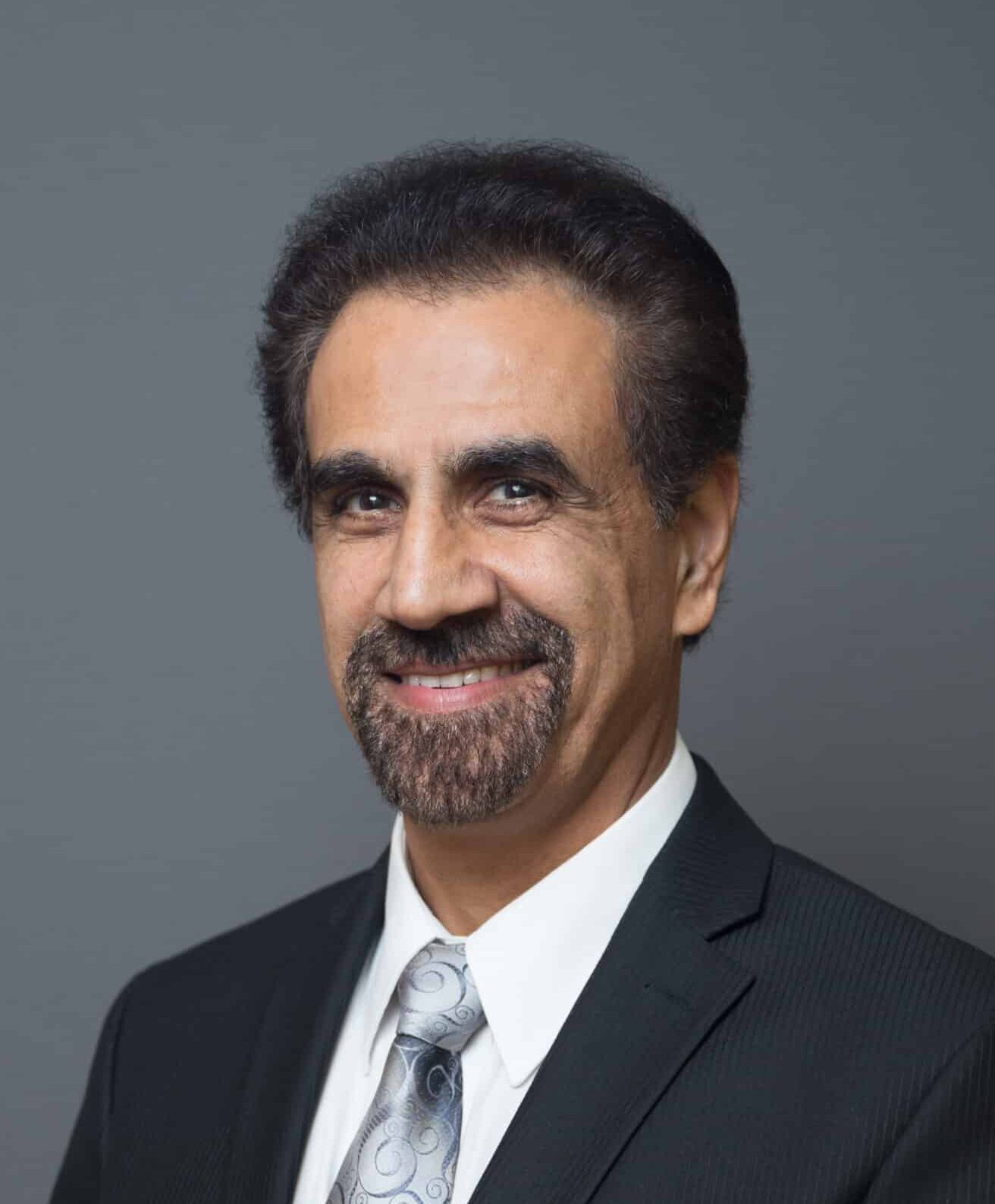
Today the Board of Trustees of the Vermont State Colleges System announced that Parwinder Grewal has accepted the position of president at Vermont State University, effective July 1, 2022. Vermont State University will welcome its first class in fall 2023. The University, comprised of the current Castleton University, Northern Vermont University, and Vermont Technical College will be the first statewide, hybrid institution in the United States.
Dr. Grewal brings over 25 years of higher education experience and 10 years of biotechnology research and development experience in industry and government in six US states and five countries. Most recently, he served at the University of Texas Rio Grande Valley, a new university created through the merger of three long-standing legacy institutions spanning multiple campuses and communities where he played key leadership roles including as the Founding Dean of the College of Sciences, Dean of the Graduate College, Executive Vice President for Research, Graduate Studies and New Program Development, and Special Assistant to the President. Prior to Texas, he served as the Department Head of Entomology and Plant Pathology at the University of Tennessee at Knoxville and as a Distinguished Professor of Entomology at The Ohio State University where he also served as the Founding Director of the Center for Urban Environment and Economic Development and of the Urban Landscape Ecology Program.
Dr. Grewal has a BS in Agriculture and a MS in Plant Pathology from Punjab Agricultural University, and a Ph.D. in Zoology from Imperial College London. In addition to his many entomology, nematology, and distinguished faculty awards, Dr. Grewal received a Fulbright Scholar Award from the U.S. Department of State and Stockholm University in Sweden in 2013.
Dr. Grewal is an internationally recognized nematologist and is ranked among the top two percent of the world’s most-cited scientists. He is also a Fellow of the Society of Nematologists and has served as its President. His most recent research has focused on community resilience through local self-reliance in food, energy, and water.
“We are excited for Parwinder Grewal to chart this new path for higher education in Vermont,” said Sophie Zdatny, Chancellor of the Vermont State Colleges System. “Dr. Grewal brings a passion for engaging students, a commitment to strong relationships with faculty and staff, and robust experience building university-community partnerships to Vermont State University. He is a thoughtful, strategic leader and we are excited to welcome him to Vermont.”
Dr. Parwinder Grewal added, “I am honored to be selected as the Inaugural President of Vermont State University. I look forward to collaborating with Chancellor Zdatny, the VSC System, the Board of Trustees, the State of Vermont, community leaders, faculty, staff, and students to build our new university as a national model for a state-wide, community-engaged, hybrid university that transforms lives and communities across the state. I see this as an incredible opportunity to build a model, post-COVID university in the United States.”
“Parwinder Grewal is a proven leader with a track record of success in bringing together institutions, leaders, and teams,” noted Megan Cluver, Vice Chair of the VSCS Board of Trustees and Chair of the Vermont State University President Search and Screen Committee. “We are confident in his ability to bring our three institutions together, and ultimately launch the new University with the needs of our students at the heart each decision. We also recognize and honor the tremendous contributions of Interim President Mauhs-Pugh of Castleton University, President Patricia Moulton of Vermont Technical College, and Interim President John Mills at Northern Vermont University, who have steadfastly stewarded us through the transformation process up to this historic point.”
Pending approval by the New England Commission of Higher Education, the accrediting body for the member institutions of the Vermont State Colleges System, the inaugural President will serve simultaneously as the President of Vermont State University and President of Castleton University, Northern Vermont University, and Vermont Technical College for the 2022-2023 academic year. During this time, he, will lead the three institutions as they transition to Vermont State University. Effective July 1, 2023, Vermont State University will officially launch as a unified, singly-accredited institution and President Grewal will assume the sole role of President of Vermont State University.
The Vermont State University President will exercise broad responsibilities for all aspects of the academic, student, financial, and development dimensions of the university. The President will report to the Chancellor and work closely with the Board of Trustees and with Vermont State University’s sister institution, Community College of Vermont.
Additional Resources:
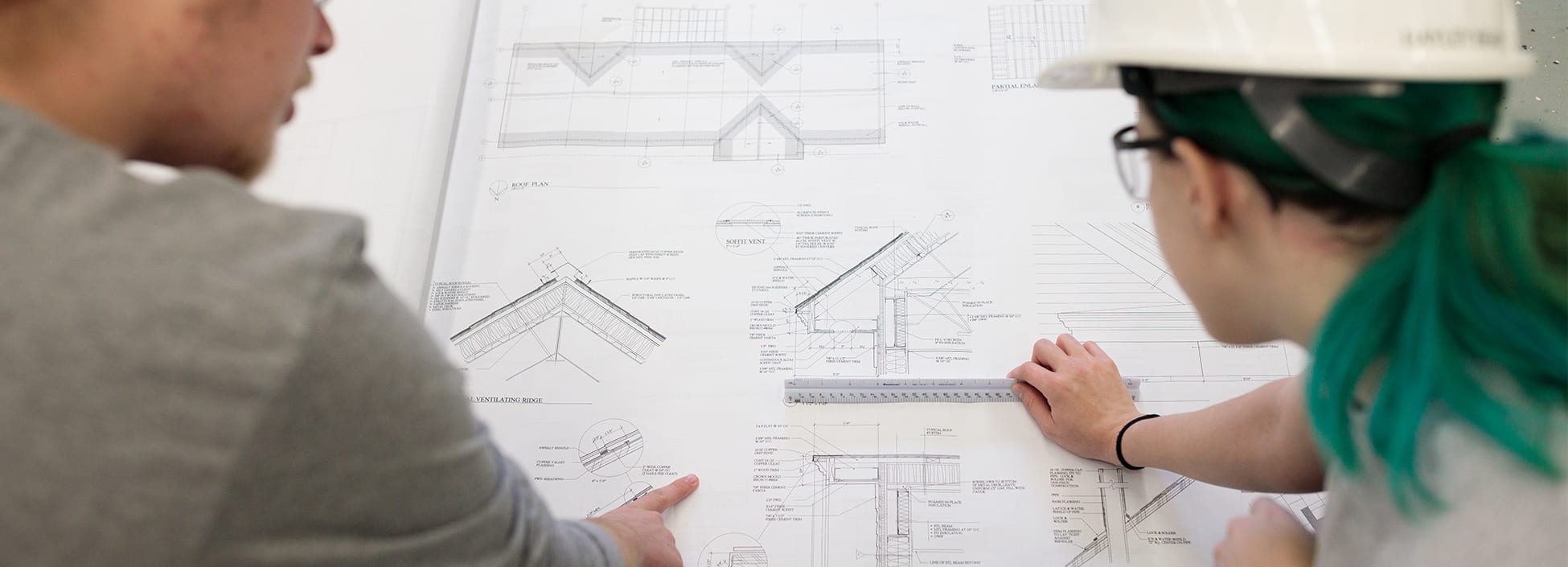
Vermont Technical College’s Construction Management Associate Degree program has been ranked #10 out of 23 Best Construction Management Associate Degree programs by Best Accredited Colleges. The ranking comes at an important time for both Vermont and the nation: Construction continues its upward jobs trend. In March 2022, the US Bureau of Labor Statistics shared a report that showed the ninth-straight month-to-month increase in jobs, pushing the industry’s total employment ahead of its pre-pandemic high mark. The U.S. Bureau of Labor Statistics (BLS) expects an 8% growth for construction managers during the 2019-2029 period, and the median earnings for these professionals were $97,180 in May 2020 (www.bls.gov).
Best Accredited Colleges considered hundreds of institutions across the country and ranked Vermont Tech using data around financial aid awards, quality of education, faculty, campus resources, and more. The team at Best Accredited Colleges realizes that each student has unique needs and goals, and its rankings highlight schools that put these needs first, while providing an education that is both attainable and high quality.
Starting a career in construction management begins with learning the necessary knowledge and skills. An Associate of Applied Science Degree programs in Construction Management give students the opportunity to develop valuable skills and gain practical, pragmatic experience. This leads to direct entry into the industry or the opportunity to complete a Bachelor of Science in Construction Management.
Students learn about residential, horizontal (roads, bridges, airports), and vertical (hospitals, schools, high-rises) construction, as well as building site supervision, construction safety business skills, and project management. The curriculum is divided between course theory and hands-on activities, such as lab exercises and visits to real construction sites and is taught by faculty who have extensive industry experience.
Students are hired for paid internships between their first and second year. Industry demand for these graduates is extremely strong.
An associate degree typically is completed in just two years, and rapidly accelerates a career in the construction industry.
With new technology comes new materials, new products, and new implementation techniques. Construction Management is an ideal major for those who enjoy a creative challenge and like to see the results of their work. Graduates of this program have found work as supervisors and project managers with construction companies like Pike, DEW Construction and PC Construction. Other career paths include construction contracting and materials testing.
Vermont Tech’s program is designed to serve both recent high school graduates with limited experience in the construction field and adults already employed in the building industry who want to prepare themselves for more advanced roles.
Learn more about Construction Management at Vermont Tech.

We are finally starting to enjoy days of light and warmth again – and it’s certainly put a spring in my step.
Transformation updates are released every two weeks and past updates are available on the VSCS’s transformation website, along with other resources.
As you know, Presidential candidates visited campus the last two weeks. The VSCS Board of Trustees is expected to make a decision at their April 18 meeting. Planning continues in earnest and I am grateful for all who are putting in so much time to help plan for the Vermont State University!
Vermont Tech ranks first in the state and #7 nationally among four-year public universities with best short-term net value, according to a new report.
Additionally, our graduating class of 2021 achieved a 99% placement rate! Since 2014, Vermont Tech has had an average placement rate of more than 97%. As in years past, 98% of Vermont Technical College’s graduates in the class of 2021 are working in their field of study.
Our online Bachelor of Science in Nursing program (BSN) program was ranked #5 out of 500 in the nation for Best Online RN to BSN Programs by RegisteredNursing.org.
Construction Management Associate Degree program has been ranked #10 out of 23 Best Construction Management Associate Degree programs by Best Accredited Colleges.
We were so excited we could host the Bridge Building competition again this year in March for middle and high school students. Once again, some great bridges and designs! Using competition specifications teams of students construct bridges in advance of the competition using only popsicle sticks, Elmer’s glue, tooth picks, and dental floss. Bridges are judged on aesthetics and originality of design, presentation, structural efficiency, predicted failure, and lowest weight. Judging is done by engineers from the Vermont Agency of Transportation.
The SkillsUSA competition for Career and Technical Education High School students were back on campus last week April 6 & 7th taking over campus with excitement. Learn more and watch the awards ceremony.
As you know our NECHE Accreditation Spring 2022 visit is this week on April 10-12!
NECHE resources along with our recent report updates can be found on our website.
Congratulations 2022 graduates – we are just over 5 weeks away from our May Commencement ceremonies!
We are looking forward to celebrating with you in person at our Randolph campus for the first time in two years. We know that graduation marks a special moment to celebrate earning your degree from Vermont Tech. The ceremony holds that same importance for the College.
For additional information about Commencement, please visit our web page.
The Vermont State Colleges Board of Trustees will have two virtual meetings in April:
The meeting materials will be posted on the VSCS web site.
To view and listen to the Board meeting only
Sign up to provide public comments and join the meeting via zoom.
All faculty, staff, and students are invited to join President Moulton at an All College meeting on Tuesday, April 19 at 12-1 pm.
The meeting agenda and further details will be sent out via email from the President’s Office soon.
Please join me in welcoming these new employees to the Vermont Tech family.

Vermont Technical College has launched a provisional chapter of Women in Aviation International in partnership with Beta Technologies and Vermont Flight Academy. The new community provides a professional networking space to students and graduates of Vermont Tech’s Professional Pilot Technology Program as well as the broader Vermont aviation community. It is the first such chapter in Vermont and one of few in New England. The chapter’s first meeting took place on Friday, March 25 at BETA Technologies.
The Vermont chapter is open to anyone interested in the field of aviation, from high school students to college students to alumni to professionals in roles ranging from pilots to flight instructors, aeronautical mechanics, and aeronautical engineers, reflecting the broad range of professional roles in the industry.
“We are excited to open up more opportunities for women looking to pursue a career in the airline industry,” said Robin Guillian, program director for the Professional Pilot Technology Program at Vermont Tech and a former airline pilot. “Now, if you are a Vermont girl into airplanes and you want to fly with a woman, you can find a connection to do that. If you are interested in being a seaplane pilot, you can connect with women who do that. The possibilities for connection are exciting.”
“Flying helps develop a really meaningful skill set, whether it’s for growing confidence, having fun, or building a career,” said Willa Clark, a team member at BETA Technologies and founding member of the chapter. “I remember the freedom and possibility I felt when I got my pilot’s license. At BETA, we’re always trying to create new opportunities and get different types of people to join this industry, so it’s exciting to be part of creating this Women in Aviation chapter that will encourage more women to pursue aviation.
The Vermont chapter will provide mentoring, scholarships, professional development opportunities, and networking events in-person and virtually. Resources will also be available for those pursuing a career in aviation. The membership cost is $35 for students, $45 for other members, and chapter dues are $15. The chapter is planning its first social gathering at a hangar space in the spring of 2022 and has plans to attend a national conference and upcoming air shows.
Vermont Tech’s Professional Pilot Technology Program is no stranger to community involvement. Vermont Tech is highly involved in STEM outreach for young women. In the past it has brought in an aviation simulator for many events (such as Women in Aviation Week), hosted a flight simulator experience for sixth graders, an aero camp, and partners with Burlington High School to host a 10-day aviation immersion experience for high school students.
Vermont Technical College has graduated 47 individuals from the Professional Pilot Technology Program since its inception in 2016, six of whom identify as women. Students who graduate from the program are typically hired as airline pilots within six months of graduation. Vermont Tech ranks #1 in Vermont and #7 nationally among public colleges for short- and long-term return on investment and has a 99% placement rate.
Learn more about our Professional Pilot Technology program.
Additional Resources:

Vermont Technical College partnered with Earthwise Global Inc., a Northfield, Vt.-based AgriTech company, on a 6-week preliminary feasibility study that evaluated the use of a nanobubble technology to grow hydroponic crops more efficiently and abundantly. Vermont Tech’s study employed Earthwise’s advanced water aeration technology and resulted in a 25% net yield in both basil and lettuce weight with additional analysis of plant health and nutrient value forthcoming.
The study results show an opportunity to increase crop yield and decrease phosphates in the environment while also improving the nutritional value of a hydroponic crop. In doing so, the research addressed critical issues facing hydronic crop growers in Vermont and more broadly; namely, food availability, access, and nutritional value as well as climate and environmental impacts.
The study was led by Michelle Sama, PhD, associate professor and department co-chair of Science, Molly Willard, project manager for Agricultural Training and director of Vermont Tech’s Institute for Applied Agriculture and Food Systems, and Ross Lieblappen, PhD, assistant professor and department co-chair of Science. It ran from mid 2021 through early 2022.
“If we can improve the growth efficiency and lessen the financial burden of producing nutritious foods, we can support our state and country in solving critical food access and availability challenges,” said Dr. Sama.
“As growers contend with climate change impacts, growing crops in a controlled environment is beneficial,” Willard added. “Earthwise technology helps growers maximize yields with lower nutrient inputs under smaller contained growing environments.”
There are potentially economic impacts as well. “We are very pleased with the collaboration with Vermont Tech and the excellent results from their study. We are also confident that we can deliver similar results in organic lettuce production, which will lead to a tremendous boon to the profitability of organic farmers,” said Peter Appleton, PhD, founder and CEO of Earthwise Global Inc. “These results, when applied to a commercial grow operation of a medium-sized, 10,000-sq ft. greenhouse, translate to over $50,000 increase in net income per harvest. “
The research is in response to Vermont’s Governor’s Commission on Agriculture recent call for changes in agricultural education and practice in order to innovate.
The goal of the feasibility study was to optimize the use of oxygen as a catalyst for efficient nutrient uptake and usage and to also reduce nutrient discharge.
Other research has shown that more than 50% of fertilizer applied to crops in open field agriculture and more than 25% in controlled environment agriculture is not taken up by the plant in the growth cycle. This results in a waste of nutrients, higher input costs, and the potential for discharge into the environment.
“Increasing nutrient uptake will produce healthier and higher-yielding crops, all while decreasing the environmental burden,” Dr. Sama explains.
It was deemed beneficial by the research team to scale up the growth experiment to a semi-full-size outdoor trial, allowing the plants to fully produce harvestable fruit. This was done to assess the representative impact of nanobubble water-to-plant growth. The study’s results indicate that while normal water used in agriculture has an oxygen concentration of 6-8 mg/L, 20 mg/L is a target concentration for optimizing green pepper plant growth.
No students were involved in this study, but there is future opportunity for students to engage in such research to experience the hands-on use of technology, engage in data analysis and measurement, and make data-informed decisions. A new hydroponic resource for Vermont Tech students is available at the Randolph campus as part of the existing greenhouse.
Based on these results, Earthwise Global, in collaboration with Vermont Tech, is seeking agricultural producers interested in applying this technology to greenhouse and field operations. Contact Earthwise at peter.appleton@earthwiseglobal.com.
Learn more about Science and Agriculture at Vermont Tech.
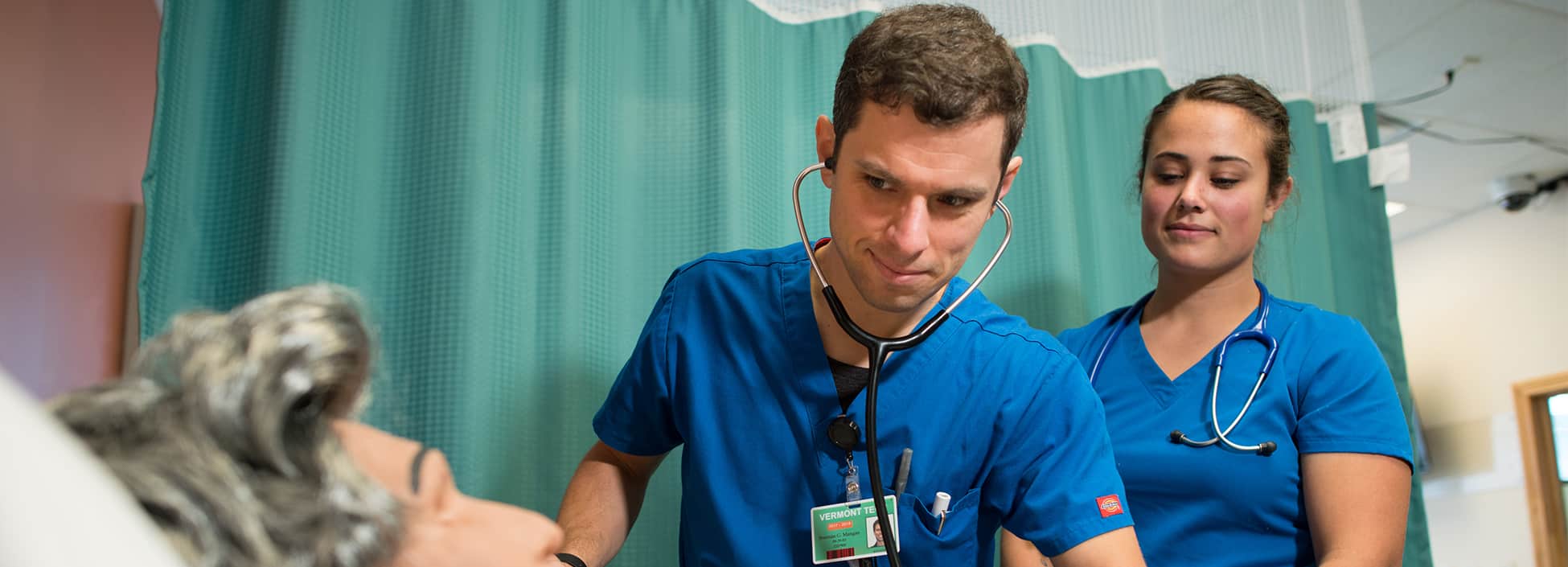
Vermont Tech’s online Bachelor of Science in Nursing program (BSN) program was ranked #5 out of 500 in the nation for Best Online RN to BSN Programs by RegisteredNursing.org, an organization of registered nurses based in Carlsbad, CA.
RegisteredNursing.org recognized that Vermont Tech’s program features online courses with local capstone experiences, a 100% job placement rate, and the opportunity for reduced tuition rates.
“From disease prevention to health and wellness promotion, Vermont Tech’s interdisciplinary BSN program prepares nurses to take charge of their careers and take care of their patients,” said Lisa Fox, DNP, MS/Ed, BS, RN, CNE, associate dean of nursing at the School of Nursing and Health Professions.
This accolade comes at a perfect time—the National League for Nursing has declared 2022 the Year of the Nurse Educator in recognition of the essential role of nursing education during the pandemic, and in celebration of its historic and continuing inspiration to nurses everywhere.
Why RN to BSN?
For decades, leaders in the field of nursing have encouraged associate’s and diploma level nurses to pursue a Bachelor’s of Science in Nursing (BSN) degree. Research has proven that nurses with this degree experience improved job satisfaction, improved patient outcomes, and fewer clinical errors.
Within the last few years, the push to hire bachelor’s educated registered nurses has gained momentum. It seems likely that in the future, a bachelor’s degree will be the minimum education requirement for registered nurses.
Online learning is more important now than ever before. Vermont Tech’s nursing program is leading the way and helping to secure the future of nursing.
As hospitals and healthcare systems make the push to hire more BSN-educated nurses, many RNs are considering a return to school to advance their education. Fortunately, online RN to BSN programs make this process quicker and easier than ever, and many RNs can continue working while they complete these programs.
Vermont Tech’s Bachelor of Science in Nursing program is an online degree-completion program intended for current RNs who are ready to pursue the next level of their nursing education while working. It is designed to prepare nurses to possess greater knowledge of health promotion, disease prevention, risk reduction, and global health. The program includes studies in healthcare information systems, palliative care, advanced assessment skills, nursing research, holistic healing, leadership and management, and community nursing.
Our BSN program is offered entirely online with additional local precepted experiences.
The Vermont Technical College Practical Nursing-system-wide (distance education), Associate Degree in Nursing-system-wide (distance education), and Bachelor of Science in Nursing (RN-BSN, distance education) programs are accredited by the National League for Nursing Commission for Nursing Education Accreditation.
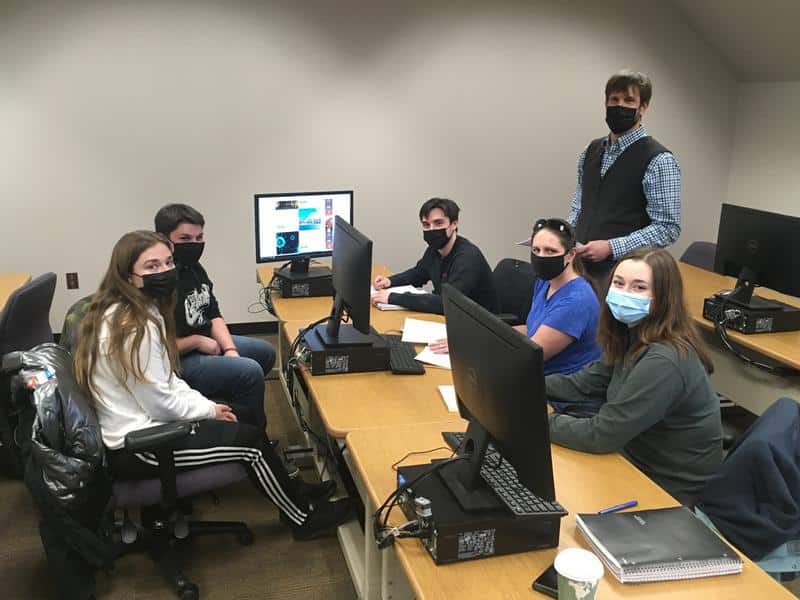
*As published by Green Energy Times, February 11, 2022
Vermont Tech’s Architectural Engineering Technology and Renewable Energy programs both include a senior capstone project, wherein students apply what they have learned in coursework toward solving a problem, capitalizing on an opportunity, or fulfilling some need. The programs both include a focus on energy issues. This year, the two programs have joined forces, challenging students to design a performing arts center in Sydney, Australia. VTC seniors will not only design the building systems, but they will apply renewable energy sources to attempt a net-zero design for the structure.
Their effort is part of the American Society of Heating, Refrigerating, and Air-conditioning Engineers (ASHRAE) 2022 Student Design Competition. The VTC students are entering the “Integrated Sustainable Building Design” option in the competition, where they will develop schematic-level designs of the architectural, mechanical, electrical, lighting, structural, civil, and site systems for a large performing arts center to be located in Sydney, Australia. The building comprises performance areas, office spaces, classrooms, food service, parking, and other uses in three levels, totaling 250,800 square feet (23,300 square meters).
The design should be environmentally friendly and meet energy-efficiency criteria from ASHRAE and others. Students will consider various heating, cooling, and ventilating systems, electrical systems and lighting technologies, and innovative materials, to be energy-efficient with a low carbon footprint (plus creating an effective, aesthetically pleasing look and comfortable conditions for employees and patrons. It is important to note that, the team will attempt to provide sufficient energy from local or on-site renewable sources to offset the building’s energy use, resulting in net-zero status. An energy production plan may include solar, geothermal, and tidal applications, among others. This marriage of energy-efficient design and renewable energy production highlights the strengths of the two programs at VTC, where Architectural Engineering Technology students bring their capabilities in optimal building system design together with Renewable Energy students’ expertise in energy use and production.
The team will spend the beginning of the semester researching Sydney, Australia and the building owner’s project requirements. They already have developed a schedule and budget for their design work. After they consider the advantages and disadvantages of various building and energy-production systems, including their sustainability and ability to be integrated effectively, they will select specific systems to pursue further, and perform the calculations and other work necessary to bring all of the building systems designs to a schematic level, along with their energy plan. They will perform an economic analysis of their design, using state of the practice tools such as heating and cooling load calculators. Their submission to the ASHRAE competition in May will include a video, a technical report documenting their engineering and architectural work, and appropriate design drawings. The team will present its project to the public on VTC’s Randolph Center campus, tentatively scheduled for May 6, 2022 (along with another Architectural Engineering Technology team focusing solely on an in-depth structural design of the same building).
The students will be guided by Scott A. Sabol, P.E., who is a full-time faculty member in the Architectural Engineering Technology program, and Nathan Mascolino, P.E., who is an adjunct faculty member whose primary employer is VEIC, an energy-solutions firm closely tied with Efficiency Vermont.
The idea to combine seniors from the two programs this year came from Professors John Kidder and Dan Costin (who directs the Renewable Energy program). Buildings represent a significant consumer of the world’s energy, and energy-efficient design alone will not be sufficient to meet Vermont’s goals. The ability to provide sustainable energy for buildings (as well as for other uses) from nontraditional sources is an additional keystone to Vermont’s and the world’s future. Professor Costin stated, “The 2021 Infrastructure Bill is going to invest billions of dollars in electrical transmission, renewable energy projects, battery storage, and electrical vehicle infrastructure. VTC is prepared to educate and train the workers who will design and build many of these systems. In fact, we have been doing that for years. Our problem in Vermont is that there are not enough workers for these technical jobs, and not enough students getting educated to meet the demand of renewable energy businesses around the state.”
More information about the ASHRAE student design competition can be found on their website and information about the course project, including the public presentations, can be obtained from Professor Sabol (ssabol@vtc.edu). Anyone seeking information about the Renewable Energy program should contact Professor Costin (dcostin@vtc.edu), and should contact Professor Brad Miller, P.E., about the Architectural Engineering Technology program (bmiller@vtc.edu).
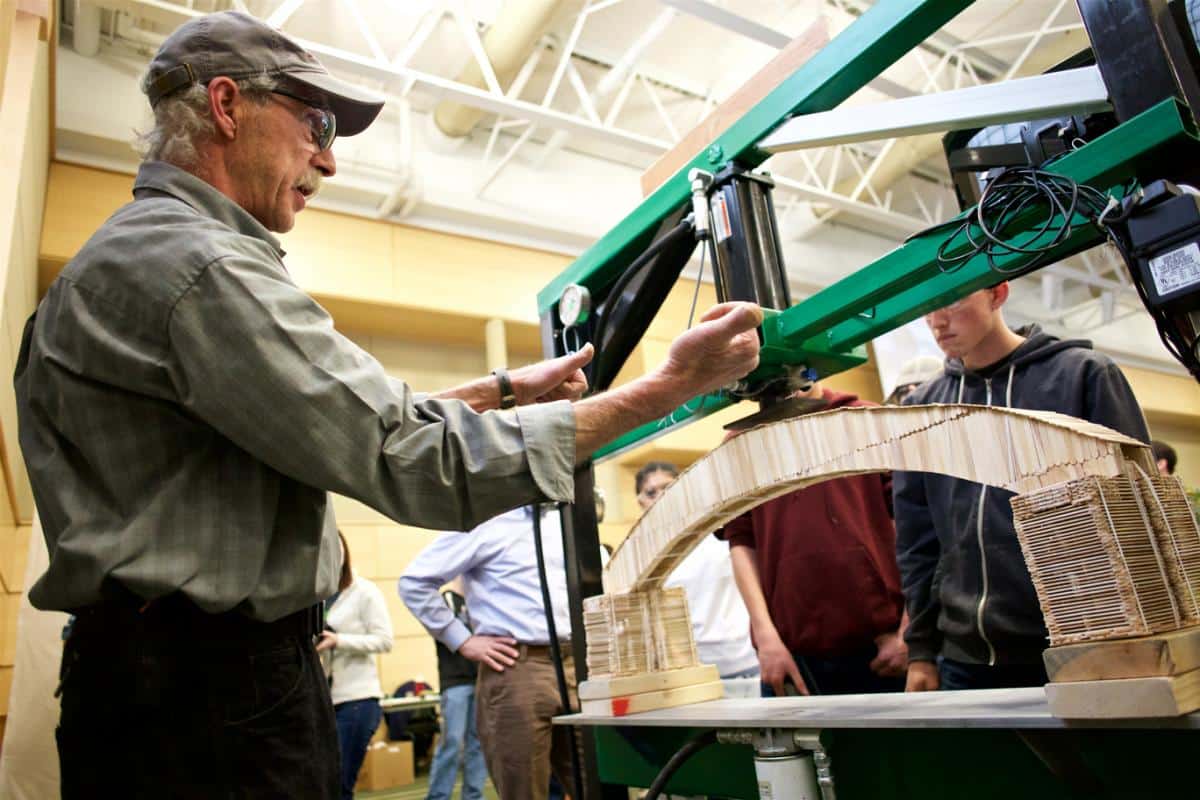
Vermont Technical College announces the return of its popular Bridge Building competition with a high school event on Thursday, March 17, and a middle school event on Thursday, March 31, 2022.
The events will be held in Judd Hall at Vermont Tech’s Randolph campus. Due to COVID-19 precautions, participation will be restricted to students who built the bridges and their advisors. Lunch will not be offered.
Model bridges promote the study and application of physics and engineering and help students develop hands-on skills. Participating students experience what it is like to be an engineer, designing structures to a set of specifications and then testing their functionality.
Teams of students construct bridges in advance of the competition—using only popsicle sticks, Elmer’s glue, toothpicks, and dental floss. Bridges are judged on aesthetics and originality of design, presentation, ultimate load carrying capacity, strength-to-weight ratio, and predicted failure point. Teams consist of 1-6 students.
The competition is designed for students and teachers interested in math, science, physics, research, and engineering. Teams receive awards for 1st, 2nd, and 3rd place as well as awards for aesthetics, presentations, bridge designs, and team spirit.
John Diebold, professor in Vermont Tech’ Civil and Environmental Engineering Technology program, has been involved in planning the competition since its inception in 2015. Over the years, he has witnessed the excitement and enthusiasm of the students.
“It is a great way to showcase the college and the program,” he said. VTC students serve as ambassadors—escorting teams over to the “crusher” to check span and height. The “crusher” is a hydraulic cylinder applied to the deck of the bridge to see what the bridge can hold—a moment of excitement for all involved. Check out the video from 2018’s event.
Diebold has seen middle school groups create bridges that have held up to 2,700 pounds, and high school groups create bridges that have held up to 4,900 pounds.
Teachers in high schools and middle schools throughout Vermont return each year to the competition, and some even design their curricula around the event.
Vicki Johnson from Randolph Union High School has had engineering students from all grade levels participate in the event since its inception. Her engineering units focus on structures, so students can apply their knowledge to the competition. “Students are always excited when they get there,” she said. “They get to see students from other schools, the bridges they’ve built, and effective designs being implemented right in front of them.”
ML McLaughlin from Barre Town Middle School and Elementary has also been bringing her eighth graders to the competition since its start. Groups of four students begin their designs in October. “It is a great way for students to learn to work out conflict, problem-solve as a group, and see a project from conception to completion. Students have said they have never felt more accomplished in their lives after the competition,” she said.
In past years, the Vermont Agency of Transportation (VAT) has provided funding for the event and its engineers have served as judges.
“It brings people out of the office and into the community,” Carolyn Cota at VAT said. “It sparks interest in STEM and engineering—that’s what it’s all about.”
Interested in signing up for the event? Check out our event page for more information on how to register.